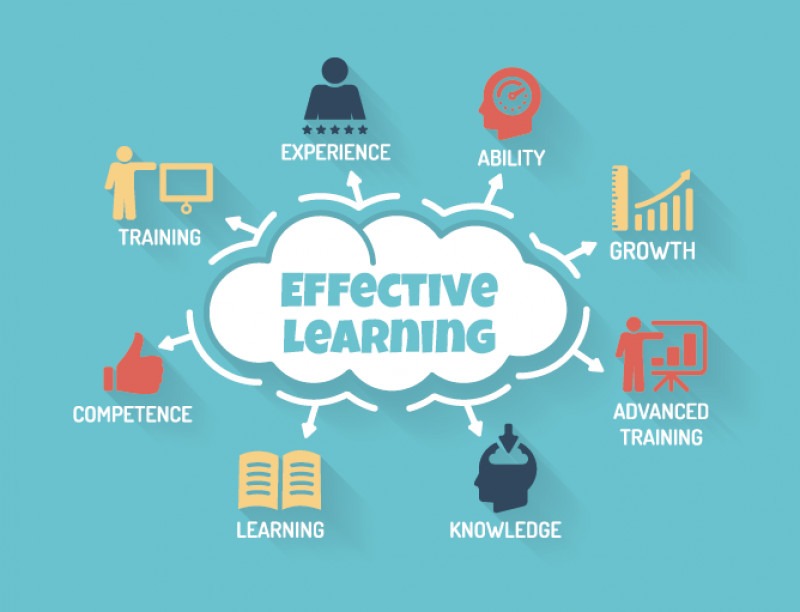Studying effectively is key to academic success. However, many students struggle to find study methods that truly work for them. With distractions everywhere and a vast amount of information to learn, adopting the right study techniques can make a significant difference in comprehension, retention, and exam performance.
This article explores effective study techniques that every student should know, providing practical tips to improve focus, understanding, and overall academic achievement.
1. Set Clear and Achievable Goals
Before starting a study session, it’s essential to define clear objectives. Setting specific, measurable, achievable, relevant, and time-bound (SMART) goals helps maintain focus and motivation.
For example, instead of saying, “I’ll study history,” say, “I will review chapters 3 and 4 and summarize key events in 90 minutes.”
Having clear goals breaks down large tasks into manageable parts, reduces procrastination, and provides a sense of accomplishment.
2. Create a Consistent Study Schedule
Consistency is crucial for long-term learning. Establishing a regular study schedule helps develop a routine, making studying a habit rather than a chore.
Plan study sessions during times when you feel most alert and productive, whether it’s morning, afternoon, or evening. Allocate shorter, focused blocks (e.g., 25-50 minutes) with breaks in between.
Using tools like calendars or study planners ensures you cover all subjects evenly and avoid last-minute cramming.
3. Use Active Learning Techniques
Passive reading or highlighting is less effective than active engagement with the material. Active learning involves interacting with content to deepen understanding.
Some active techniques include:
-
Summarizing: Write summaries of what you’ve read in your own words.
-
Teaching: Explain concepts to a friend or imaginary audience.
-
Questioning: Ask yourself questions about the material and try to answer them.
-
Flashcards: Use flashcards for key terms and concepts to test recall.
-
Mind Mapping: Create visual diagrams connecting ideas.
Active learning stimulates critical thinking and helps transfer information to long-term memory.
4. Practice Retrieval and Self-Testing
Testing yourself is one of the most powerful study techniques. Instead of re-reading notes repeatedly, try recalling information without looking.
Self-testing can be done through practice exams, quizzes, or using flashcards. This retrieval practice strengthens memory and highlights areas needing improvement.
Frequent, low-stakes testing reduces exam anxiety and boosts confidence.
5. Apply the Pomodoro Technique
The Pomodoro Technique is a time-management method that breaks study time into focused intervals, typically 25 minutes, followed by short breaks (5 minutes).
After completing four intervals, take a longer break (15-30 minutes). This approach helps maintain concentration, prevent burnout, and improve productivity.
Using timers or apps can keep you accountable and make study sessions more structured.
6. Minimize Distractions
Creating a distraction-free environment is essential for effective studying. Identify common distractions like smartphones, social media, noisy environments, or multitasking.
Turn off notifications, use website blockers, or study in quiet places such as libraries or dedicated study rooms.
Keeping your study area organized and having all materials ready before starting saves time and reduces interruptions.
7. Take Effective Notes
Note-taking is a skill that supports comprehension and review. Effective notes are concise, organized, and highlight key points.
Popular note-taking methods include:
-
Cornell Method: Divides the page into sections for notes, cues, and summaries.
-
Outline Method: Uses headings and subheadings to structure information.
-
Mapping Method: Visualizes connections between ideas.
-
Charting Method: Compares related information in columns or tables.
Reviewing and rewriting notes shortly after class reinforces learning.
8. Use Multiple Resources and Modalities
Learning through different modalities—reading, listening, watching, and doing—enhances understanding.
Supplement textbooks with videos, podcasts, infographics, or educational apps. Explaining material verbally or writing it down caters to auditory and kinesthetic learners.
Diverse resources prevent monotony and help clarify complex topics.
9. Group Study with Purpose
Studying with peers can offer diverse perspectives, motivation, and support. However, group study is effective only when focused and well-organized.
Set clear agendas, assign topics, and use the group to clarify doubts, quiz each other, or discuss concepts.
Avoid off-topic conversations and keep sessions time-bound.
10. Prioritize Sleep, Nutrition, and Exercise
Physical wellbeing strongly influences cognitive function. Sleep consolidates memory, while poor rest impairs attention and reasoning.
Eating balanced meals and staying hydrated fuels the brain. Regular exercise boosts mood and concentration by increasing blood flow.
Students who maintain healthy lifestyles often experience better academic performance.
11. Break Down Complex Material
Large or difficult subjects can feel overwhelming. Breaking down material into smaller, manageable chunks makes studying more approachable.
Use techniques like chunking to group related information or create step-by-step guides to tackle complex problems.
This approach builds confidence and reduces anxiety.
12. Review Regularly and Space Out Learning
Spacing out study sessions over days or weeks improves retention compared to cramming. Regular review reinforces knowledge and prevents forgetting.
Plan periodic revision sessions in your study schedule to revisit previous topics, integrating new information with old.
Spaced repetition apps can automate this process effectively.
13. Set a Positive Mindset and Stay Motivated
A positive attitude toward studying improves focus and perseverance. Set personal rewards for milestones achieved, visualize success, and remind yourself of your goals.
Avoid negative self-talk and seek support from friends, family, or mentors when needed.
Motivation fuels sustained effort and resilience.
14. Use Technology Wisely
Many apps and digital tools can enhance study efficiency:
-
Note-taking apps (Evernote, OneNote)
-
Flashcard apps (Anki, Quizlet)
-
Time management apps (Forest, Focus Booster)
-
Online research tools (Google Scholar, Khan Academy)
Choose tools that complement your style without becoming distractions.
Conclusion
Effective study techniques are essential for academic success and lifelong learning. By setting clear goals, creating consistent schedules, engaging actively with material, and managing time and environment wisely, students can enhance comprehension and retention.
Incorporating self-testing, group study, and healthy habits further boosts performance. Technology offers valuable support but requires mindful use.
Every student can find a combination of strategies that work best for them, unlocking their full potential and achieving their educational goals with greater ease and confidence




